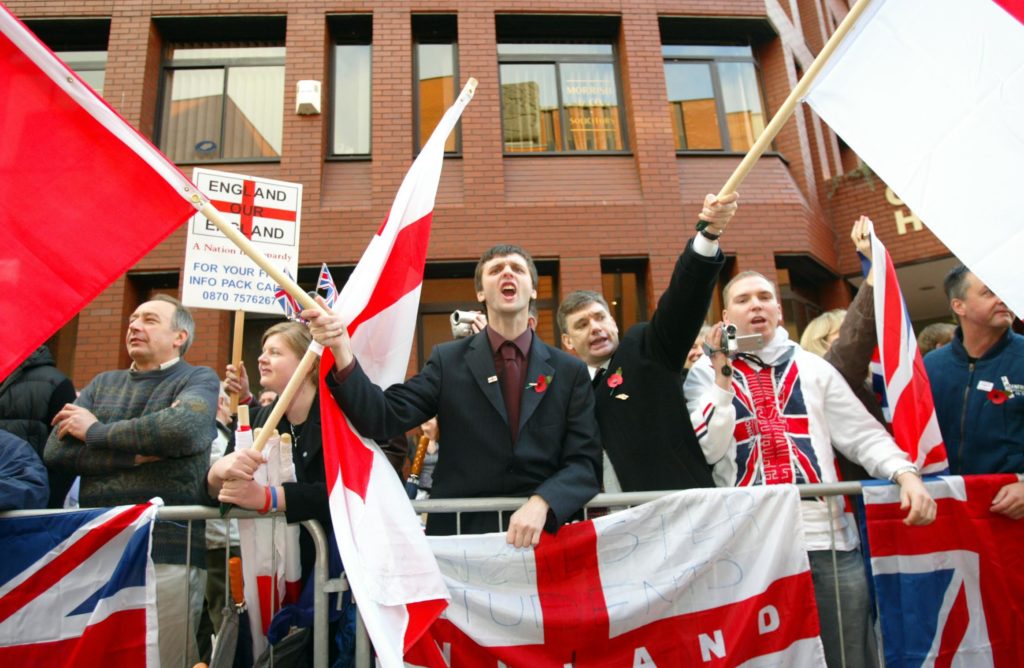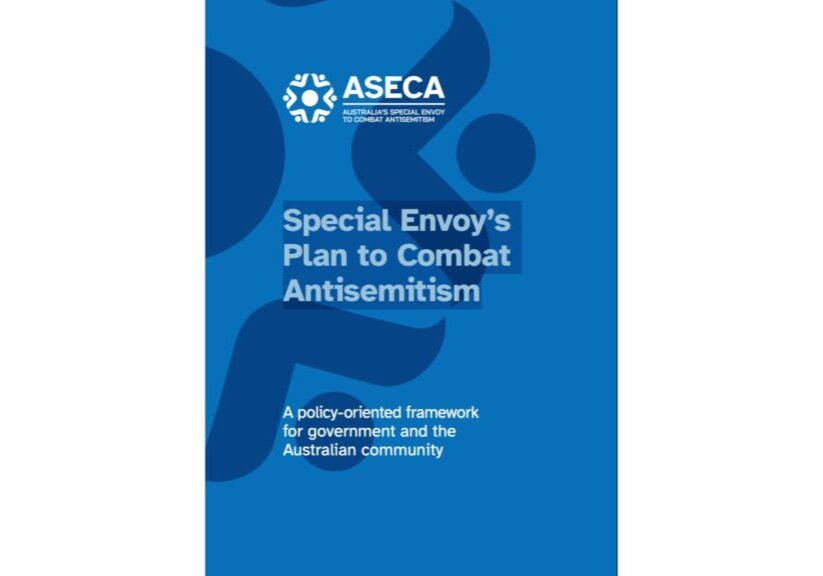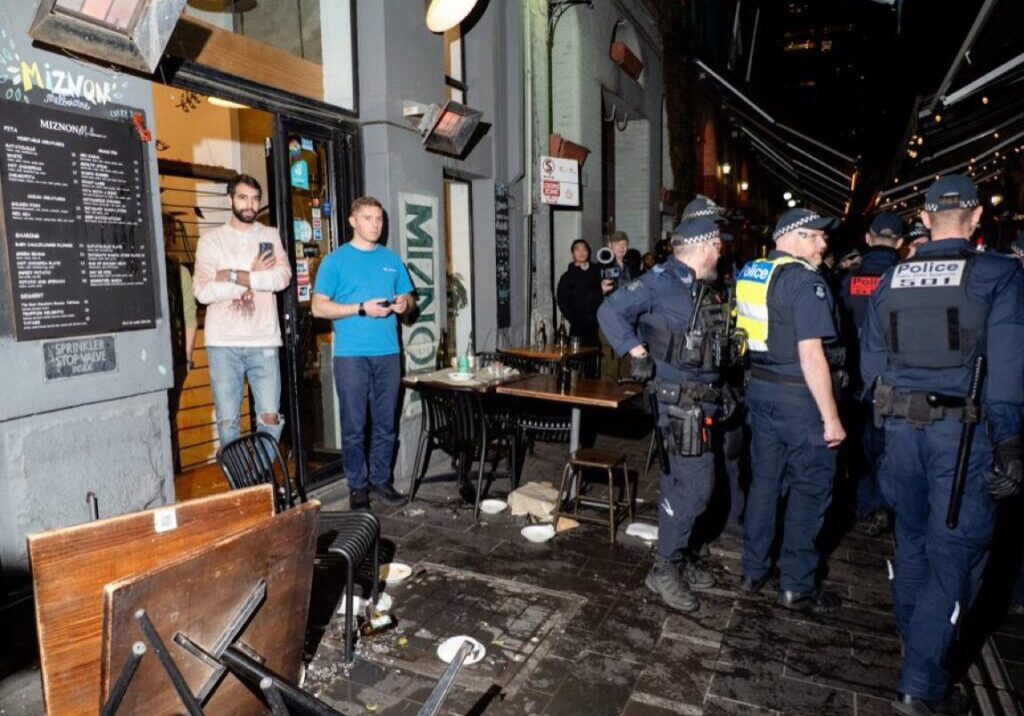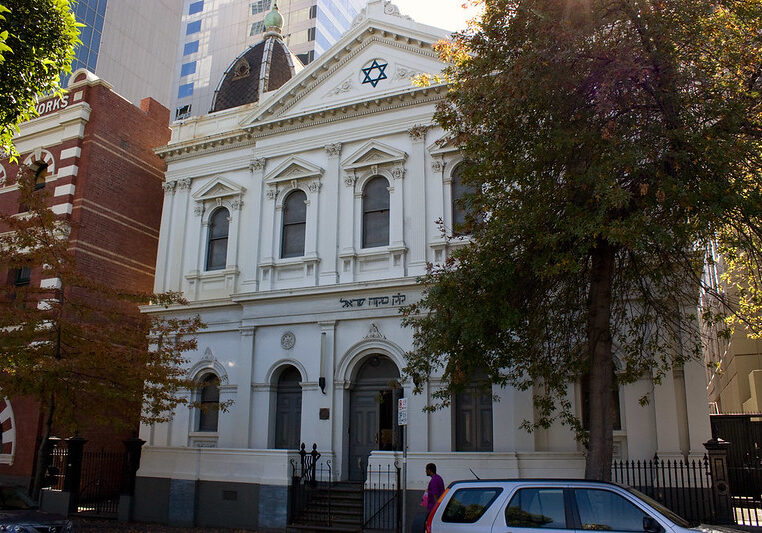Australia/Israel Review
The Biblio File: The Right’s Wrongs
Sep 26, 2011 | Jeremy Jones

Hate: My Life in the British Far-Right
Matthew Collins, Biteback Publishing, London, 2011, 335 pp.
Jeremy Jones
Some years ago, I was sitting in my office in Darlinghurst, East Sydney, when I received a telephone call with an unappealing invitation.
“Jeremy Jones, we want to invite you to a barbecue” snarled my caller. “And you will be what we cook.”
After asking my caller whether I could bring any drinks, I was told that this was not really an invitation but a threat (gee, to think I hadn’t worked that out…)
My caller then said he knew that I had been responsible for troubles experienced by a group of far right ratbags (my words, not his) and that they knew where I lived. I thanked him for caring and hung up.
Within a relatively short period of time another person called Jeremy Jones experienced a spate of harassing telephone calls and a person who appeared in the telephone directory as “J Jones” woke up one morning to find their home daubed with antisemitic and other racist graffiti.
Reading Matthew Collins’ Hate: My Life in the British Far Right, I am glad that I live in Australia and didn’t have dealings with the UK far right at the time.
Through this autobiographical work, a reader is given an intensive view of the violent personalities who inhabit the British far right, with as much detail and astute observation as could be packed into its 335 pages.
Collins has, in recent years, developed a high profile and a dedicated following as a researcher of, and public voice against, the racists, bigots and thugs who inhabit the gutters of the far right of British politics.
In Hate, readers learn of his journey into, within and out of the main, interlinked groups which sought to create and exploit intolerance and prejudice in the Britain of the 1980s.
While still a teenager, Collins rose through the ranks of the National Front (NF), while also having close associations, not always comradely, with the British National Party (BNP) and the neo-Nazi Combat 18.
He tells of how his life was given direction, if not actual meaning, by the father-figures who were only too willing to both exploit and promote him.
One of the themes of the book is how belonging to far right groups imbued him with a sense of power – with some graphic descriptions of brutal assaults on weaker people and, less often, combat with others who saw violence as both a means to an end and an end in itself.
While portraying a public image of ideological, even at a stretch intellectual, campaigners against what they identified as social ills and threats to their fantasies of the English way of life (such as black immigrants, Jews, Irish), the individuals at the heart of the book are dysfunctional, pathetic, morally bankrupt and highly self-delusional.
He tells of meetings with many unsavoury individuals, particularly those associated with the BNP. He recalls sitting in a colleague’s kitchen, stuffing envelopes with propaganda, being swayed by a German visitor’s promotion of Holocaust denial:
“How could I ever have doubted that the Holocaust – the systematic murder of millions of Jews, gypsies, homosexuals and trade unionists – happened? Simply, because I needed to. If you want to (dis)believe something enough, eventually you will. I was convinced that the film shot at the Nazi death camps was all made by Hollywood movie-makers, filming Russians in German uniforms murdering and hanging Jews. After all, why would the Germans have filmed this genocide themselves? There was a massive conspiracy to discredit National Socialism; the only people to benefit were the Jews who now controlled the world once more.”
He was convinced; “Matthew, you will never get all of the things you want unless we demolish the Holocaust myth first.”.
“Holocaust denial was the staple diet of the far right in the 1980s and 1990s and still is to a degree today. To make people believe that the Jews are evil, you must first convince them that they lie about the Holocaust.” Collins then noted, “The sort of publicity Holocaust denial brought the BNP was remarkable. They even charged the BBC £50 for entry to their bookshop to film them at work. For the anti-Semites who sat on the NF’s ruling body, it was almost too much to bear.”
Collins does not spare himself when documenting the unappealing behaviour of the lonely disaffected social outcasts who were at the centre of the far right grouplets.
A veteran of brawls and campaigns by the age of 18, Collins tells of his disaffection with sheer hatred and mindful brutality and his psychological, and later intellectual and actual, distancing from his erstwhile comrades.
Collins eventually left England, for his own safety. He arrived later in Melbourne, where I met him at the time David Irving was suing me for defamation (Irving subsequently withdrew the suit). Collins’ and Irving’s paths had crossed as segments of the British far right sought to create pseudo-academic credentials for some of their bigotry. Collins was thus able to confirm the associations of a person who, at that time, had some vestiges of respectability.
On his return to England, he made a number of observations on the state of the far right.
“The violence, terrorism, rapes and lies of the far right continue to this day. Now though, the arena is different. Nick Griffin is now an MEP (Member of the European Parliment) along with Andrew Brons, formerly of the Flag faction.” This is perhaps self-evident.
But just as concerning is this: “How identity politics replaced class politics in those ten absent years I spent in Australia is breathtaking… But the explosion of identity politics from groups like the English Defence League, and the seeming inability of many to understand it as well as counter it effectively, is the most worrying thing we face right now. Because they are working class, because they are overwhelmingly white and from the football terraces, it’s almost as if no one wants to tackle their message head-on. And it is the Muslim community that faces their threat, daily.”
Although this is an autobiography and as such focuses on one person’s life and observations, the book provides a template for understanding fanaticism and the socio-politics of extremism.
After reading this book, the phenomenon of an Anders Behring Brievik is easier to comprehend – indeed a number of the footsoldiers of bigotry in Collins’ passing parade of characters displayed the hate, the embrace of violence and the world-view, if not the same sociopathology, which characterised the Norwegian mass murderer.
The internal operation of the groups on the extreme right which Collins has documented also will be familiar to students of the recruitment methods, psychology and functioning of groups on the extreme left.
The far right provided a substitute family and peer group, elevated fanaticism and dogmatic politics to almost ideal behaviour and provided a mission and an outlet for teenage machismo.
Hate: My Life in the British Far Right is graphic and leaves little to the imagination. As a means of learning about, understanding and being in a better position to do something to combat the phenomenon of violent extremism, these details – and the critique of them – are far from gratuitous.
This book is a valuable reminder that extremist ideas are held, and violent actions perpetrated, by real, if deeply flawed, human beings. To understand this is to better understand the dangers they pose.
Tags: Antisemitism






